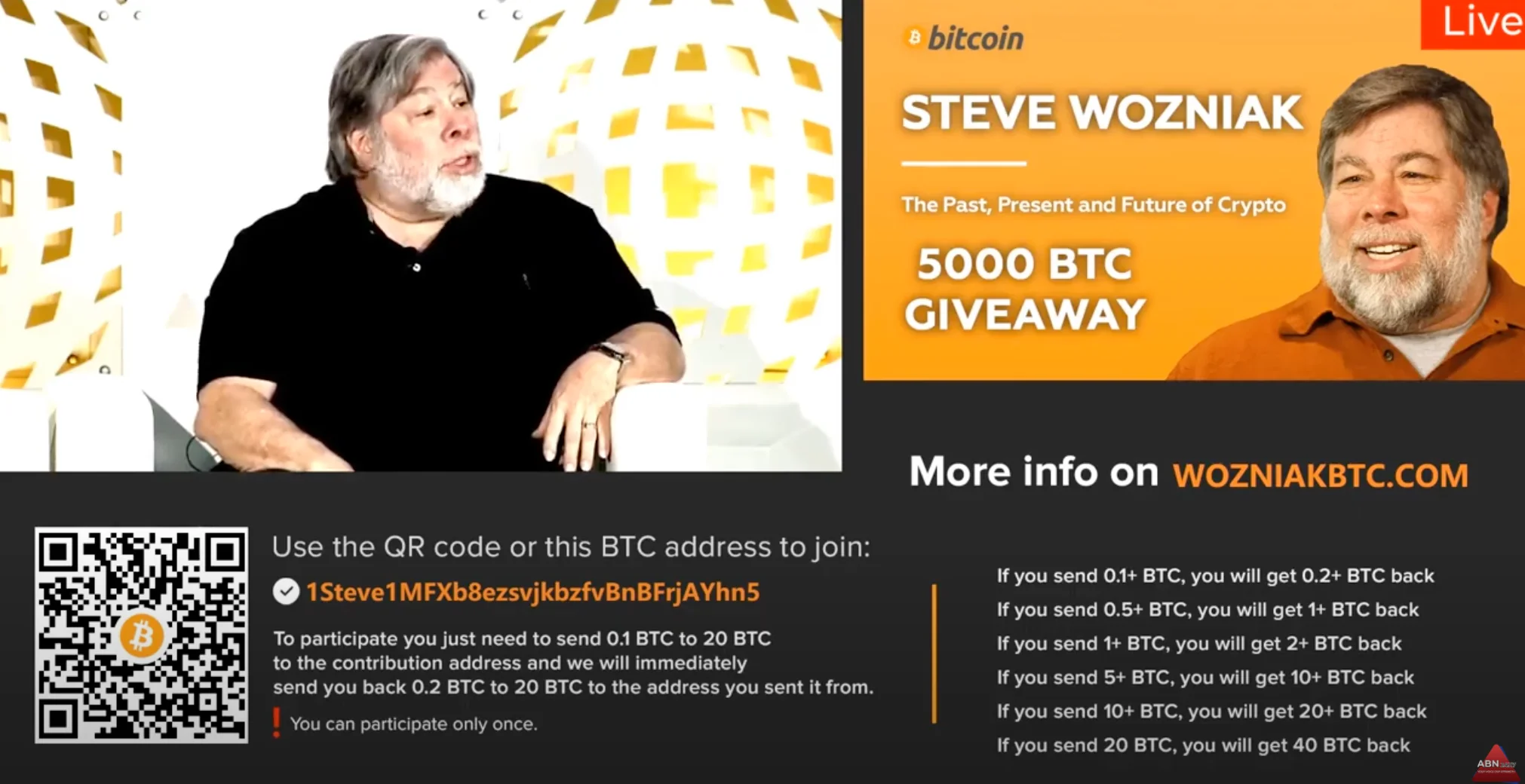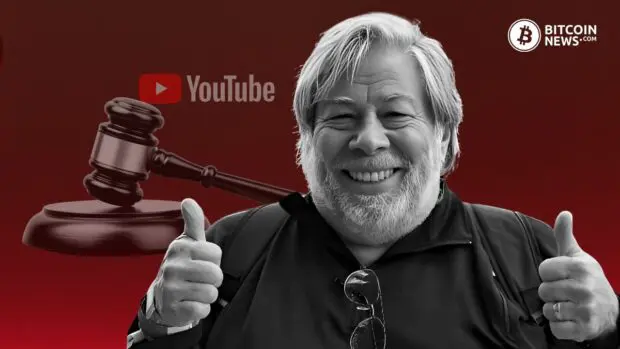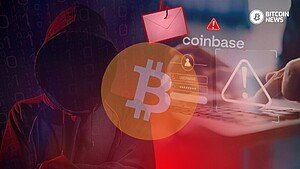Apple co-founder Steve Wozniak has won a court battle against YouTube concerning the unauthorized use of his likeness in doctored videos promoting a Bitcoin giveaway scam in 2020. The latest ruling by a San Jose appeals court has overturned a previous judgment that absolved YouTube of any liability in the matter.
The appeals court’s verdict emphasizes that YouTube cannot invoke a controversial communications statute to keep itself away from being accountable for a fraudulent scheme exploiting Wozniak’s popularity through fake videos.
As reported by Bloomberg, this ruling paves the way for Wozniak to pursue his lawsuit against the video-sharing platform. Moreover, it can potentially prompt a reevaluation of federal laws safeguarding video streaming platforms like YouTube from liability associated with content posted on their platforms.
Bitcoin Giveaway Scam: Background
On July 21, 2020, during the intense COVID-19 pandemic phase, Steve Wozniak, along with 17 other prominent figures, including Bill Gates, Elon Musk, and Michael Dell, initiated legal action against YouTube and its parent company, Google. This was regarding the circulation of manipulated videos promoting a bogus bitcoin giveaway scam on the platform.
According to legal representatives from the firm Cotchett, Pitre & McCarthy, Google and its subsidiary, YouTube, failed in their duty to safeguard users from fraudulent bitcoin giveaway scam channels featuring images and videos of Wozniak and other celebrities.
These fake videos, engraved with additional text and imagery promising free bitcoin, misled users into believing that sending the digital asset to a specified address would double their amount, when in reality, victims received nothing.

Overturn of the Previous Decision
The recent appeals court ruling marks a significant turning point for Wozniak and his co-plaintiffs, overturning a previous decision in 2021 by a Santa Clara County Superior Court judge. The previous judgment shielded YouTube under Section 230 of the Communications Decency Act, the federal law protecting social media platforms from being sued for their users’ content.
The judges noted a disturbing trend where popular YouTube channels are frequently compromised to promote fraudulent activities. Google and YouTube were deemed accountable for their role in “providing verification badges to hijacked YouTube channels.”
The plaintiffs may now have an additional avenue at their disposal. Initially, the lower court had not allowed them to initiate discovery proceedings against the defendants, citing “costly and protracted legal battles.” However, the appeals court’s pronouncement signals a shift in this stance. It stated:
“Those grounds have now shifted, and we remand for the trial court and the parties to consider the appropriate scope of discovery in light of our decision and subsequent developments in the trial court.”
Related reading: Everyone’s a Scammer
YouTube’s ‘Material Contribution’ to Scam
The appeals court also noted the platform’s failure to promptly remove these verification badges even after the channels started posting scam videos. Notably, one of the channels received a verification badge during the scam, highlighting YouTube’s carelessness in this process. As a result, the court ruling reasoned that companies may not be shielded by Section 230 immunity when their actions “materially contributed” to fraudulent activities.
Joe Cotchett, representing Steve Wozniak, hailed the verdict as a significant step towards ensuring accountability among social media platforms, stating:
“Google and YouTube should take responsibility for their actions. They cannot use Section 230 as a total shield for their conduct.”










